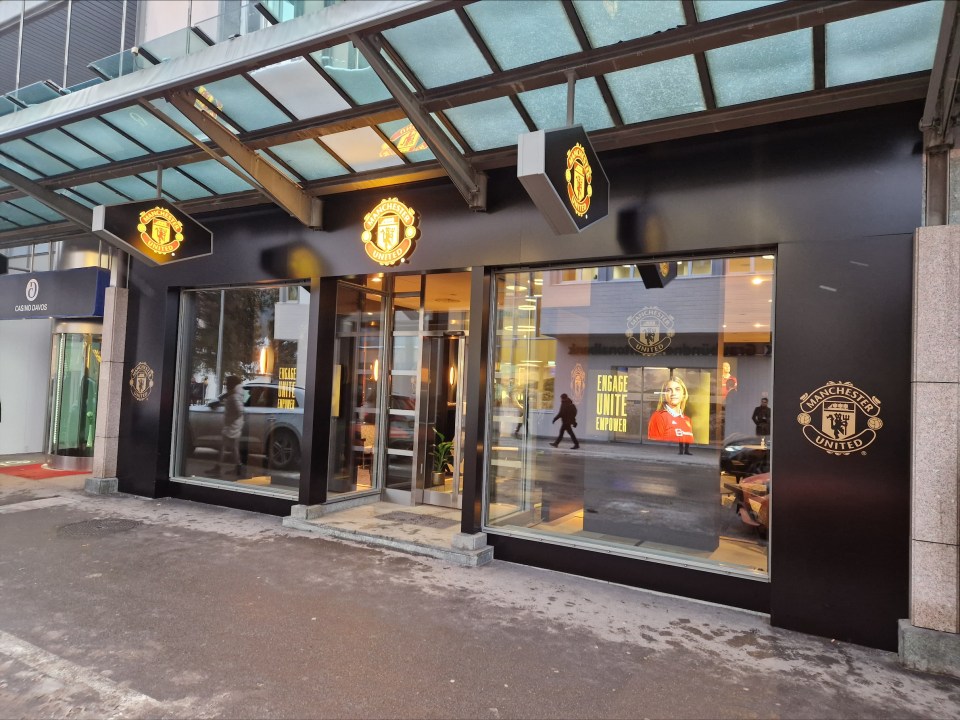The Notebook: Neil Bennett’s Davos dispatch

The Notebook is a place for interesting people to say interesting things. Today it’s the turn of Neil Bennett, Global Co-CEO of communications advisory giant H/Advisers – writing on Ukraine in Davos, Manchester United’s bold marketing strategy and why the Swiss town remains the place to be
I am in Davos this week to host a panel for my firm H/Advisors on the daunting task of rebuilding Ukraine once there is peace. That may seem a long way off, but it is vital that the planning starts now on how the West and the business community can help the country emerge from this devastating conflict stronger and better.
Our panel has three senior Ukrainian business leaders who will be at the forefront of any reconstruction programme. There is Sergiy Tsivkach, the CEO of UkraineInvest and an adviser to the Prime Minister; Volodymyr Lavrenchuk, CEO of Neqsol, a major investor in the country’s energy and telecoms sectors and Andrey Zdesenko, an energetic entrepreneur who has created Ukraine’s leading household products group.
The Panel (which will be taking place on Wednesday morning) will focus on the scale of the investment needed; where such vast amounts can come from; how Ukraine and the international community can attract capital; and how, to use an already overused phrase, they can Build Back Better. We are hoping to stimulate the debate and do it early, since the post-war task will be enormous, but there will be great opportunities for anyone sufficiently far-sighted to invest.
Whatever is happening on the ground, Ukraine is certainly winning the PR battle at Davos particularly as the Russians aren’t allowed in any longer. Last year it scored a coup when it converted the building that was the Russia House since time immemorial into the ‘Russian War Crimes House’. This year its pavilion has a life-sized video screen of two children walking down the street of newly liberated Kherson.
Generating support and attention for Ukraine and ensuring it has access to the most powerful political and economic levers is a great example of what Davos should be about – away from the ever-present commercialism (all the tech giants have vast pavilions here).
Interestingly it is clear there are two Davoses. There is the official one in the conference centre where the WEF works through its agenda diligently. Then there is Fringe Davos – all the events that take place outside the conference centre in the cafes, shops and restaurants along the Promenade (the town’s Main Street) which are rented out for the week. Increasingly Fringe Davos is more vibrant, younger and frankly more interesting than the main event.
Still on top
Davos has always had its detractors, who see it as a liberal elite pow-pow, where smug group-think
reigns supreme. The nay-sayers have been delighted this year that only one G7 leader is turning up,
Olaf Scholz from Germany, citing it as proof that the WEF Summit has had its day, especially after
the disappointing turn out last May.
So I asked Sir Martin Sorrell, Founder of S4 Capital, former head of WPP and a 30-year veteran of
event, whether we have indeed passed ‘peak Davos’.
“Well there is a lot more competition these days from organisations like Google and the Milken
Institute, so its market share is under pressure,” he accepted. “And the conference is perhaps less
global this year and more European – the Chinese delegation is smaller and there are no Russians for
obvious reasons.”
“But it is still a tremendous place to learn a lot and meet a lot of people in a very short space of
time.”
There is nowhere like it that brings politicians, economists and business people together to discuss
global issues, he continues. “And this year there is a lot to discuss.” With war, inflation, recession
and increasing global tension on the menu he is not kidding.
Can I quote you on that?
“We are facing the collapse of the world as we know it, the way we are accustomed to it or to what we aspire”
Olena Zelenska does not pull any punches as she addresses the WEF
Football crazy?
One of the odder sights at Davos this year is the Manchester United pavilion. Why on earth is a
football club here? Think twice and it makes smart sense – ManUtd is really a £5bn media group and
it is here to cosy up to sponsors, real and potential. And with the sale talks continuing who knows?
Maybe someone walking down the Promenade will fancy some shopping.

Worth your time
PwC’s Annual Global CEO Survey is always worth a read for anyone trying to get into the heads of our business leaders. This year’s version, published just in time for Davos, is no exception. It shows that CEOs are worrying a lot about the state of the world and the prospects for their businesses. A stark 40% say their companies will be economically unviable in ten years time unless they makes radical changes. Three quarters of them believe that global economic activity will decline this year. And confidence in their own business’s ability to deliver growth this year has also slumped. Chewy reading for any delegate here.
Neil Bennett is global co-ceo of strategic communications advisory H/Advisors. He can be found on LinkedIn, where he posts regularly, here.